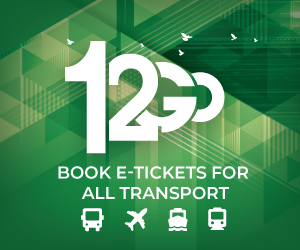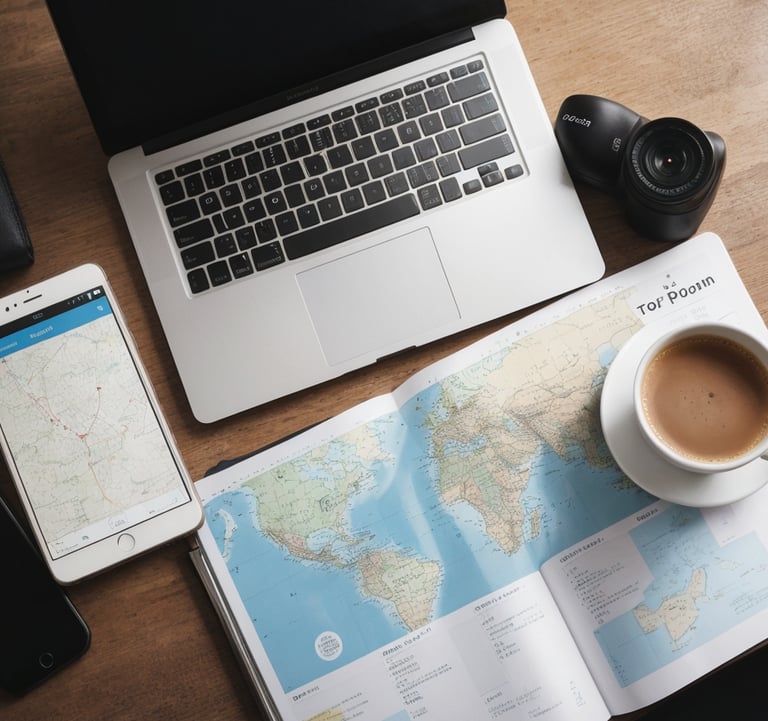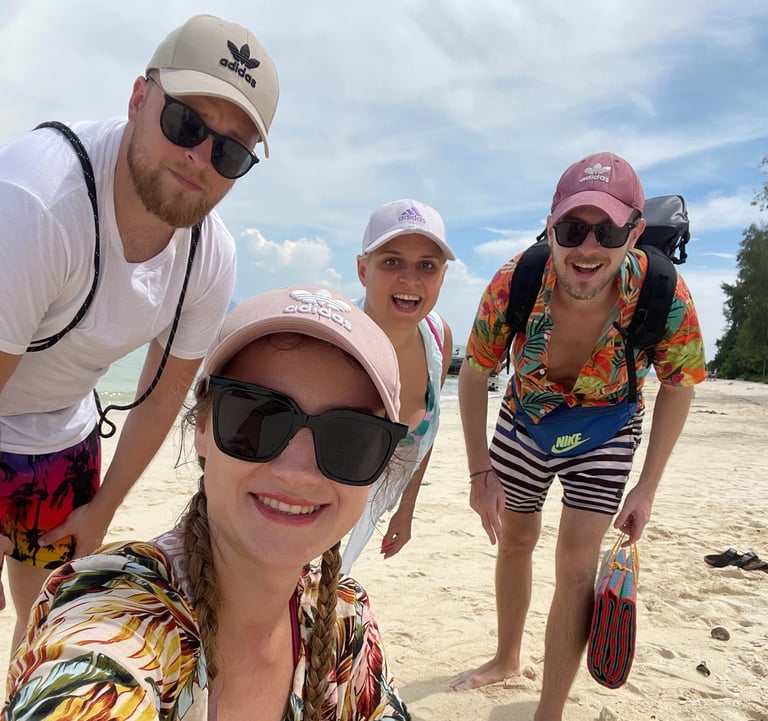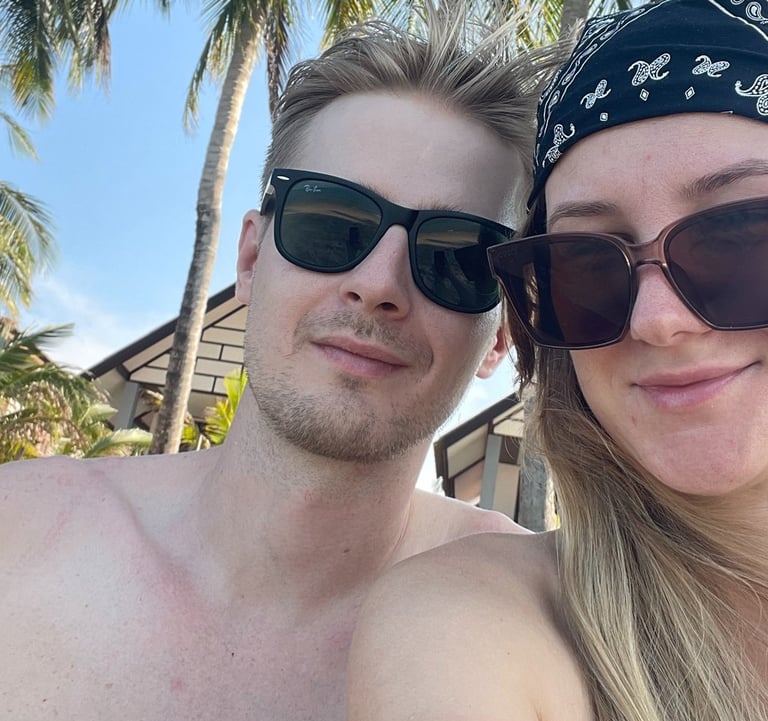
FAQ Thailand
Below you’ll find answers to the most frequently asked questions from our travelers. If you have more questions - don’t hesitate to reach out! You can schedule a travel consultation with us or ask for help planning your dream holiday. We’ll be happy to help :)
When to go? Weather in Thailand
Andaman Sea (Khao Lak, Similan Islands, Surin Islands, Phuket, Krabi, Koh Phi Phi, Koh Lanta, Koh Ngai, Koh Muk, Koh Kradan, Koh Lipe) – best weather from December to March, high chance of rain from May to October.
Western Coast and Gulf of Thailand (Hua Hin, Koh Samui, Koh Tao, Koh Phangan) – best weather from April to October, high chance of rain from December to February. The hottest month is May, the rainiest is September. In general, this part of Thailand enjoys good weather all year round. The Gulf is usually spared from monsoons, so conditions are favorable most of the time.
Eastern Coast (Pattaya, Koh Chang, Koh Kut, Koh Mak, Koh Samet) - best weather from November to March, high chance of rain from June to September.
Northern Thailand (Chiang Mai, Chiang Rai, Pai) - best weather from October to April, high chance of rain in July and August, but that’s also when you’ll see beautiful waterfalls, lush tea plantations, and green rice fields.
Northeast Thailand (Ubon Ratchathani, Khon Kaen, Nakhon Ratchasima) - best weather from November to March, high chance of rain in August.
Bangkok - generally good weather all year round. The best time is from November to February, when it’s not too hot and sightseeing is comfortable. The rainy season usually falls between June and August, but it’s still a decent time to visit the capital. The worst time to visit is during the hot season (March–May), when temperatures can reach up to 40°C.
How much cash should you bring? Euro or US dollars?
The answer is simple - as much as you need, and the currency... doesn’t really matter. If you already have euros or US dollars, just bring what you’ve got. Don’t exchange euros for dollars or the other way around. If you have US dollars, make sure they’re not older than 2010, as older notes may not be accepted. If you don’t have foreign currency and want to buy some, it really depends on which is cheaper to exchange in Poland. Once you arrive in Thailand, exchange around €100 / $100 at the airport to cover a taxi and your first expenses. If you bring more cash, keep it with you just in case, but the best option is usually to withdraw larger amounts directly in Thai baht from an ATM. Every ATM in Thailand charges a fixed 220 THB fee, no matter the withdrawal amount. Using a currency card or Revolut is usually cheaper than exchanging PLN → USD → THB.
Can you pay by card in Thailand?
In better hotels and resorts, you can easily pay by card, though they often charge a 2–5% transaction fee. You can also pay by card in 7-Eleven stores (for purchases over 200 THB), in better restaurants, and in chain stores like Watsons or McDonald’s. However, cash is king. On night markets, local shops, food stalls, small restaurants, tuk-tuks, and local tour booths, cash is the only option. Always carry some Thai baht so you’re not scrambling to find an ATM.
Krabi or Phuket?
First, remember that Thailand is a big country, so it doesn’t have to be one or the other 🙂 Phuket is an island (approx. 12.5 km²), while Krabi is an entire province (4,700+ km²) so they’re hard to compare directly. Phuket offers beautiful beaches without boat rides, the Big Buddha, and is a great base for island hopping – to the Similan Islands, Koh Phi Phi, Surin Islands, Coral Island, or Racha Island. It’s also known for street food, parties, and convenience. Krabi, on the other hand, is an excellent launch point for exploring nearby islands such as Hong Island, Poda Island, Koh Phi Phi, Koh Lanta, Koh Ngai, and Koh Muk. It’s home to the Railay Peninsula with the stunning Phra Nang Beach and Tonsai Beach. Krabi is perfect for kayaking through mangroves, exploring jungle lagoons, and riding a scooter through scenic landscapes on quiet, wide roads.
How many days should you stay in Bangkok?
Some people will tell you to get out as soon as possible, while others spend a month and still want more. Bangkok is a huge city, full of attractions of all kinds - but for those not used to heat and concrete chaos, it can be overwhelming.
If it’s your first time in Thailand, and you have only two weeks, focusing on relaxation, beaches, and nature, my advice is to see the city’s highlights and move on. Spending 2–3 full days is enough to explore the essentials and decide whether you’d like to come back next time 😉
How many destinations are ideal for a 2-week trip?
If you’re planning a two-week trip and want to see as much as possible, I recommend sticking to 3 destinations - maximum 4 (especially if they’re close together, like Phuket - Phi Phi - Railay - Krabi). The more destinations you add, the more tiring your trip becomes. Transfers take time, it’s hot, attractions close early, and it gets dark quickly. For a 2-week holiday, 3 places are the perfect balance: enough to explore, relax, and still have time to enjoy yourself without rushing.
Which SIM card to buy in Thailand?
If you’re not planning to work, download movies, or mine crypto 😉, any tourist SIM card for 2 weeks will do just fine. The best providers are AIS, True Move, and DTAC. You can buy their SIM cards at 7-Eleven stores, SIM booths, or shopping malls (where prices are usually the lowest). Realistically, you won’t need much mobile internet - Wi-Fi is available almost everywhere (hotels, cafés, restaurants, malls). You can easily enjoy your vacation without constant connectivity, but if you prefer to stay in touch, these three networks are your best choice. Here you can find a breakdown of current SIM card prices and packages.
How to find cheap flights to Thailand?
First - flexibility is key. The more fixed your dates, the harder it is to find a good deal. Try to depart and return midweek (Tuesday, Wednesday, Thursday), as these days are usually cheaper. Compare different options on platforms like Skyscanner or Kayak, but don’t check too often - use incognito mode and, ideally, a VPN from another country. Flights often appear cheaper when booked on a computer rather than a phone. Whenever possible, book directly with the airline. If you’re booking through a third party, make sure your layover is at least 3 hours. Avoid major holidays (Christmas, New Year’s, long weekends), as prices are significantly higher. Set up price alerts for your chosen route and wait for deals to appear. Don’t limit yourself to your nearest airport - check others nearby, but calculate whether the cost of getting there (fuel, tolls, parking, buses, trains, etc.) doesn’t outweigh the savings. Remember that cheap flights often come with trade-offs - no checked luggage, no meals or drinks, and no personal screens for entertainment. On long-haul routes, especially if you’re flying with children, it’s worth choosing better airlines like Qatar Airways or Emirates. Also note that flying in and out of Bangkok isn’t always the most efficient choice - even if it’s cheaper. Sometimes it’s smarter to fly into one city and out of another, saving you both time and money within Thailand. Instead of returning to Bangkok just for your flight, you could spend that time relaxing on the beach or getting a massage before heading home. If you’d like help finding the best flight or transport options within Thailand, we can help you save time, stress, and hours of searching online.
How to get around Thailand - where to find connections?
If you’re unsure which transport option is best for your route, use 12goasia. You can book tickets directly through them or via another reseller. The great thing about 12Go Asia is that it shows combined routes (for example, bus + ferry connections) that come with a transfer guarantee - meaning they’ll wait for you even if your first leg is delayed.
Medication, vaccinations, illnesses and stomach issues
First and foremost - bring any prescription medications you take regularly, plus a basic first-aid kit (waterproof plasters, painkillers, antihistamines, probiotics). You don’t need any special documentation to carry medicines. In Thailand, you’ll find almost everything you might need without a prescription at pharmacies, and even 7-Eleven stores have decent medical supplies. It’s better to be vaccinated than not, but there’s no need to panic or go overboard with vaccines for Japanese encephalitis, malaria pills, or adrenaline kits. The essentials - Hepatitis A and B, diphtheria, tetanus, and pertussis - are usually enough. Everyone’s body is different, so treat this as a general recommendation, not a one-size-fits-all guide. Before traveling to tropical destinations, it’s wise to consult a travel medicine specialist. For stomach issues - start taking probiotics before your trip, continue during your stay, and keep using them for a bit after returning home. It’ll make your gut more resilient (and your peace of mind helps too 😉). If you experience an upset stomach, don’t worry - it’s normal. The water is different, the food spicier, and the spices stronger. If you have a sensitive stomach, use bottled water to brush your teeth. If you develop a fever, rash, severe diarrhea, or get bitten by something, don’t wait until you return to Poland - call your insurance provider immediately. They’ll direct you to the nearest, well-equipped hospital. You might be surprised by the quality of medical care here - often far better than expected. The local doctors will quickly determine whether it’s a simple cold, food poisoning, or an allergic reaction - or something tropical that needs treatment. And trust me - if it’s something tropical, you’ll be better off being treated in Thailand than back home.
Mosquitoes in Thailand
Yes - they exist, just like everywhere else in the world. The key is to use repellent and avoid scratching bites. You can buy effective anti-itch creams in any Thai pharmacy or convenience store. Salt water and sweat can make bites itch more, so it’s good to keep a small tube of ointment with you. There’s no need to pack heavy, smelly sprays from home - Thai stores sell excellent local repellents. Mosquitoes are most active in the early morning, at sunset, and after rain. Protect your skin, apply repellent, and you’ll be fine to head out and enjoy your evening.
Big spiders, snakes, lizards, and insects
Outside of the jungle or forest, the chances of encountering a snake or spider are about the same as seeing a grass snake while exploring Warsaw, Kraków, or Gdańsk - theoretically possible, but when was the last time you actually saw one? There’s no need to panic. Spiders are similar to those you’d find in Europe - small and harmless. You might occasionally see one, but it’s rare since most resort owners regularly spray their gardens. Apart from mosquitoes, the occasional bee, flying ant, dragonfly, or butterfly, you won’t encounter anything dangerous. What you will definitely see are small geckos. Sometimes, if you’re lucky, you might spot a larger one. The little ones are adorable, funny, and useful - they eat mosquitoes, flies, and other bugs. They move quickly and might startle you when they dash out from behind a frame, but they’re completely harmless and always run away from people. If one enters your room - let it stay. It’s doing you a favor.
Monkeys in Thailand
Monkeys, just like dogs or cats, will go after food if they hear crinkling wrappers or see you holding something to eat. The difference is that monkeys have hands - they can snatch it much faster. They won’t meow or wag their tails - they’ll simply grab what they want and run off. If you’re in a place known for monkeys (like Monkey Beach on Koh Phi Phi, Railay Beach near the cave, or Monkey Trail in Ao Nang), don’t flash objects that might attract them and never leave your belongings unattended. Don’t provoke them - no touching, grabbing tails, or staring into their eyes. If you ignore them, they’ll ignore you. Monkey bites are painful and require medical treatment, so do not feed them, as that encourages them to approach tourists. If you’re staying in a remote resort surrounded by palm trees and see monkeys nearby, keep windows and balconies closed. They can sneak into rooms, rummage through trash, and even steal valuables. At best, you’ll find your things scattered around; at worst, your phone or wallet will be gone. If you’re afraid of monkeys, avoid wild, secluded accommodations.
Thailand with kids - will they get bored?
Thailand is an amazing destination for families with children. There are beautiful, calm beaches with shallow water stretching for several meters - perfect for safe play near the shore. The Thai people love children, especially younger ones. They’ll often bring toys, coloring books, or even hold the kids to make them laugh. Many hotels offer great family facilities - slides, playgrounds, and pools. At night markets, you’ll often find bouncy castles and small rides, like in Ao Nang. For older children - don’t worry! You don’t need special entertainment. Beach days, swimming, boat trips, tuk-tuk rides, snorkeling with colorful fish, meeting elephants, or visiting vibrant night markets will be a huge adventure. Trust me - your only problem will be answering the question: “Mom, Dad, when are we going back to Thailand?” 😉
Accommodation - how and where to find it
Thailand is one of the most popular travel destinations in the world. The days of cheap walk-in accommodation are, unfortunately, mostly gone - at least in popular tourist areas. If you’re backpacking, flexible with time, and don’t mind a fan-only bungalow with a questionable flush, you’ll still find a bed for around 30 PLN per person. However, if you’re on vacation with fixed dates, hoping to see several destinations within two weeks, don’t waste your time wandering from hotel to hotel with your bags. Gone are the days when locals stood by the road with “Free Rooms” signs, competing for guests. Nowadays, we’re the ones competing for a good room in a great location - and to win, you need to book early. The best deals disappear like hotcakes. That dreamy beachfront bungalow with an outdoor shower for 100 PLN/night? Realistically, that’s the price of a shared dorm room with a communal bathroom, unless you book well in advance. Sure, last-minute deals still pop up - but usually, what’s left are overpriced, low-standard options in inconvenient locations. Always check the area before booking. A hotel might look perfect online, but if the beach is 7 km away, the nearest shop 2 km, and there’s no public transport nearby - you’ll end up relying on taxis. After calculating those costs, you might realize it’s cheaper (and far more comfortable) to pay a little extra for a better-located hotel. There are many more factors that affect your comfort and total cost - too many to list here (I could write a whole book about it!). We’ve stayed in countless places - and as a hotelier by profession, I know exactly what’s often hidden behind those glossy hotel photos. And a small tip - if the first photo on booking shows the pool instead of the room… be suspicious 😉
If you want to make sure your hotel truly meets your expectations - and avoid overpaying - you know who to ask. We’ll be happy to help you 🥰










